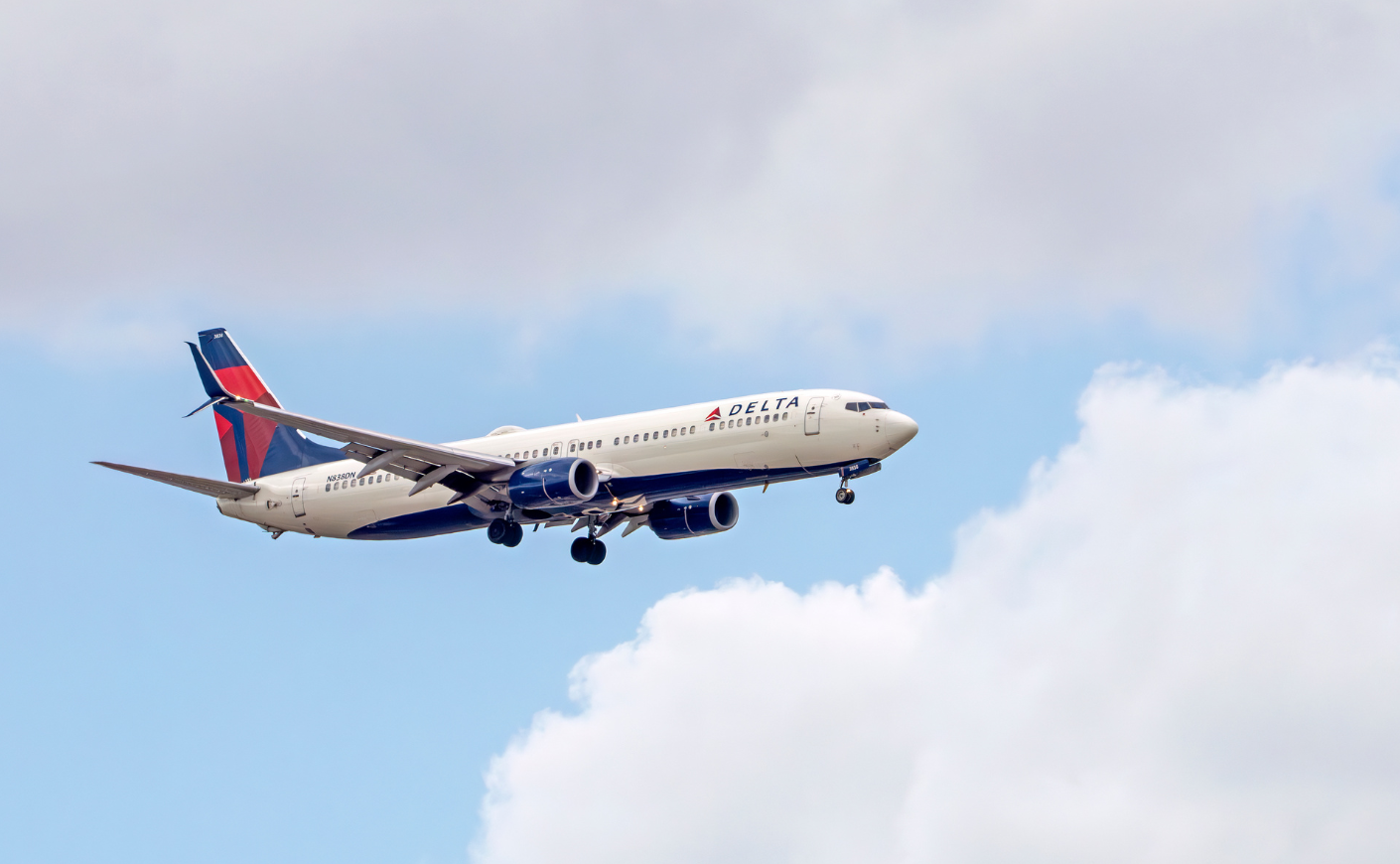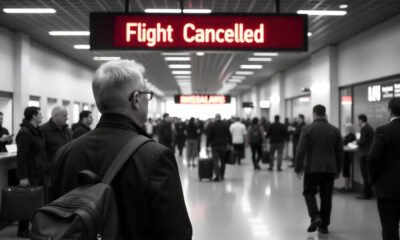AI in Travel
Digital Missionaries Unite In Rome: Exploring Innovative Evangelization and AI Integration

Tuesday, July 29, 2025
Rome has become the focal point for thousands of pilgrims converging for the Jubilee of Digital Missionaries, a unique event highlighting the intersection of faith and technology. This unprecedented gathering brings together digital missionaries from around the globe, committed to utilizing digital media as an innovative platform for religious outreach. Organized to align strategically with the Jubilee of Youth, the event leverages younger generations’ natural connection to digital spaces, underscoring the modern potential of religious evangelization. Participants are engaging in dynamic dialogues about best practices, emerging technologies, and personalized content strategies, aiming to significantly enhance global evangelization efforts. Key topics include discussions on integrating artificial intelligence (AI) into digital evangelization, providing targeted, meaningful spiritual experiences. The Jubilee stands as a testament to the Catholic Church’s forward-thinking approach, demonstrating a powerful commitment to modernizing traditional outreach methods to connect more deeply and effectively with people around the world.
Embracing Digital Evangelization
The event has attracted approximately 1,000 digital missionaries from around 50 different countries. These individuals are uniting to explore and amplify the effectiveness of digital media in disseminating religious teachings and values. Scheduled concurrently with the Jubilee of Youth, this strategic alignment leverages the natural affinity younger generations have toward online interactions, making digital evangelization particularly timely and effective.
Role of Catholic Media Organizations
A leading Catholic media and publishing entity with extensive experience in digital communication has been instrumental in facilitating this event. The organization’s involvement highlights the significant expertise brought to discussions on how digital platforms can enhance the Church’s outreach efforts worldwide. This collaboration emphasizes a collective dedication to harnessing digital tools to communicate religious messages more effectively and broadly.
Best Practices and Collaboration
Throughout the jubilee, attendees are actively engaging in exchanging knowledge, discussing effective digital evangelization strategies, and fostering meaningful networks. Workshops and interactive sessions led by experienced digital communicators and creators provide participants with actionable insights into personalizing digital content to better meet individual spiritual needs. This collaborative environment enables attendees to identify and adopt innovative approaches proven to resonate deeply with contemporary audiences.
The Shift to Personalized Faith Experiences
Digital evangelization has notably evolved from merely digitizing traditional religious texts to creating personalized, interactive experiences tailored to individual users. Modern platforms now deliver frequent, relatable, and engaging content that aligns closely with personal spiritual journeys. This personalized approach fosters deeper connections and significantly increases the impact and relevance of religious teachings for users worldwide.
Exploring Future Technologies: AI Integration
The jubilee is also looking toward future technological innovations, notably the incorporation of artificial intelligence (AI) into digital evangelization. AI technologies hold immense promise for enhancing the precision and relevance of digital religious content by tailoring messages specifically to the unique spiritual and emotional contexts of users. Leveraging AI could lead to highly personalized and timely religious guidance, significantly enhancing user engagement and spiritual fulfillment.
Key Event Highlights:
- Participants: Approximately 1,000 digital missionaries from around 50 countries.
- Objectives: Strengthening digital evangelization methods, sharing global best practices, and fostering international collaboration.
- Activities: Interactive workshops, expert discussions, networking sessions, and strategy development.
- Future Initiatives: Emphasis on integrating AI and advanced digital technologies to deliver personalized religious content.
Current Event Overview
- Location: Rome, Italy
- Dates: July 28–29, 2025
- Parallel Event: Jubilee of Youth
Attendees are encouraged to maximize their participation by actively engaging in discussions, sharing experiences, and leveraging this unique opportunity to foster global connections within the digital missionary community.
Next Steps for Digital Evangelization
Moving forward, digital missionaries are advised to implement insights gained during this jubilee, continuously exploring new technological solutions and content strategies. Ongoing collaboration, regular professional development, and sustained innovation will be critical to ensuring digital evangelization remains vibrant, effective, and relevant to global audiences. Regular updates, continuous learning, and strategic planning will enable digital missionaries to successfully expand their reach and deepen their impact.
AI in Travel
Delta Air Lines Will Use A.I. Personalized Pricing: What Is It?

Recently, Delta Air Lines announced it would expand its use of artificial intelligence to provide individualized prices to customers. This move sparked concern among flyers and politicians. But Delta isn’t the only business interested in using A.I. this way. Personalized pricing has already spread across a range of industries, from finance to online gaming.
Customized pricing — where each customer receives a different price for the same product — is a holy grail for businesses because it boosts profits. With customized pricing, free-spending people pay more while the price-sensitive pay less. Just as clothes can be tailored to each person, custom pricing fits each person’s ability and desire to pay.
I am a professor who teaches business school students how to set prices. My latest book, The Power of Cash: Why Using Paper Money is Good for You and Society, highlights problems with custom pricing. Specifically, I’m worried that A.I. pricing models lack transparency and could unfairly take advantage of financially unsophisticated people.
The history of custom pricing
For much of history, customized pricing was the normal way things happened. In the past, business owners sized up each customer and then bargained face-to-face. The price paid depended on the buyer’s and seller’s bargaining skills — and desperation.
An old joke illustrates this process. Once, a very rich man was riding in his carriage at breakfast time. Hungry, he told his driver to stop at the next restaurant. He went inside, ordered some eggs and asked for the bill. When the owner handed him the check, the rich man was shocked at the price. “Are eggs rare in this neighborhood?” he asked. “No,” the owner said. “Eggs are plentiful, but very rich men are quite rare.”
Custom pricing through bargaining still exists in some industries. For example, car dealerships often negotiate a different price for each vehicle they sell. Economists refer to this as “first-degree” or “perfect” price discrimination, which is “perfect” from the seller’s perspective because it allows them to charge each customer the maximum amount they’re willing to pay.
Currently, most American shoppers don’t bargain but instead see set prices. Many scholars trace the rise of set prices to John Wanamaker’s Philadelphia department store, which opened in 1876. In his store, each item had a nonnegotiable price tag. These set prices made it simpler for customers to shop and became very popular.
Why uniform pricing caught on
Set prices have several advantages for businesses. For one thing, they allow stores to hire low-paid retail workers instead of employees who are experts in negotiation.
Historically, they also made it easier for stores to decide how much to charge. Before the advent of A.I. pricing, many companies determined prices using a “cost-plus” rule. Cost-plus means a business adds a fixed percentage or markup to an item’s cost. The markup is the percentage added to a product’s cost that covers a company’s profits and overhead.
The big-box retailer Costco still uses this rule. It determines prices by adding a roughly 15% maximum markup to each item on the warehouse floor. If something costs Costco $100, they sell it for about $115.
The problem with cost-plus is that it treats all items the same. For example, Costco sells wine in many stores. People buying expensive Champagne typically are willing to pay a much higher markup than customers purchasing inexpensive boxed wine. Using A.I. gets around this problem by letting a computer determine the optimal markup item by item.
What personalized pricing means for shoppers
A.I. needs a lot of data to operate effectively. The shift from cash to electronic payments has enabled businesses to collect what’s been called a “gold mine” of information. For example, Mastercard says its data lets companies “determine optimal pricing strategies.”
So much information is collected when you pay electronically that in 2024 the Federal Trade Commission issued civil subpoenas to Mastercard, JPMorgan Chase and other financial companies demanding to know “how artificial intelligence and other technological tools may allow companies to vary prices using data they collect about individual consumers’ finances and shopping habits.” Experiments at the FTC show that A.I. programs can even collude among themselves to raise prices without human intervention.
To prevent customized pricing, some states have laws requiring retailers to display a single price for each product for sale. Even with these laws, it’s simple to do custom pricing by using targeted digital coupons, which vary each shopper’s discount.
How you can outsmart A.I. pricing
There are ways to get around customized pricing. All depend on denying A.I. programs data on past purchases and knowledge of who you are. First, when shopping in brick-and-mortar stores, use paper money. Yes, good old-fashioned cash is private and leaves no data trail that follows you online.
Second, once online, clear your cache. Your search history and cookies provide algorithms with extensive amounts of information. Many articles say the protective power of clearing your cache is an urban myth. However, this information was based on how airlines used to price tickets. Recent analysis by the FTC shows the newest A.I. algorithms are changing prices based on this cached information.
Third, many computer pricing algorithms look at your location, since location is a good proxy for income. I was once in Botswana and needed to buy a plane ticket. The price on my computer was about $200. Unfortunately, before booking I was called away to dinner. After dinner my computer showed the cost was $1,000 — five times higher. It turned out after dinner I used my university’s VPN, which told the airline I was located in a rich American neighborhood. Before dinner I was located in a poor African town. Shutting off the VPN reduced the price.
Last, often to get a better price in face-to-face negotiations, you need to walk away. To do this online, put something in your basket and then wait before hitting purchase. I recently bought eyeglasses online. As a cash payer, I didn’t have my credit card handy. It took five minutes to find it, and the delay caused the site to offer a large discount to complete the purchase.
The computer revolution has created the ability to create custom products cheaply. The cashless society combined with A.I. is setting us up for customized prices. In a custom-pricing situation, seeing a high price doesn’t mean something is higher quality. Instead, a high price simply means a business views the customer as willing to part with more money.
Using cash more often can help defeat custom pricing. In my view, however, rapid advances in A.I. mean we need to start talking now about how prices are determined, before customized pricing takes over completely.
Jay L. Zagorsky, Associate Professor Questrom School of Business, Boston University
This article is republished from The Conversation under a Creative Commons license. Read the original article.
AI in Travel
Talking to me takes the stress out of trip planning.

BarcelonaLayla has been planning trips since 2024. To talk, you don’t need to visit an agency, make a phone call, or observe any time restrictions: any device with an internet connection is sufficient to reach her. Layla presents herself with the self-confidence characteristic of job interviews: “Talking to me takes the stress out of planning trips,” “talking to me is like having your own travel guru without the high price.” But Layla isn’t just any worker: she’s an artificial intelligence (AI).
AI in Travel
Delta rejects AI pricing under political heat

Major Carrier Commits to Fair Pricing Amid Growing Congressional Scrutiny
Delta Air Lines has taken a definitive stance against artificial intelligence-powered personalized ticket pricing, responding to mounting pressure from federal lawmakers and widespread consumer anxiety about algorithmic discrimination in air travel costs.
The Atlanta-based carrier’s position emerged following sharp criticism from prominent Democratic senators who questioned whether the airline planned to use AI technology to extract maximum revenue from individual passengers based on their personal financial profiles.
Congressional Pushback Intensifies
Democratic Senators Ruben Gallego of Arizona, Mark Warner of Virginia, and Richard Blumenthal of Connecticut spearheaded the legislative challenge, arguing that AI-driven individualized pricing could exploit travelers by calibrating fares to their perceived ability to pay premium rates.
The senators’ concerns centered on algorithmic pricing systems that could analyze personal data — from browsing history to demographic information — to determine how much each customer might be willing to spend on airfare.
Delta’s response was unequivocal. The airline categorically denied any intention to implement pricing algorithms that target individual consumers with customized rates based on personal information. This commitment represents a significant policy declaration in an industry increasingly embracing artificial intelligence across operations.
Technology Integration Without Personalization
While rejecting personalized AI pricing, Delta plans substantial technological advancement through its partnership with Fetcherr, an AI pricing specialist. The collaboration aims to deploy AI-based revenue management systems across 20 percent of the carrier’s domestic route network by late 2025.
The distinction Delta emphasizes lies in data aggregation versus individual targeting. The airline maintains its pricing algorithms will analyze broad market trends, competitive landscapes, and general demand patterns rather than personal consumer profiles.
This approach reflects traditional airline revenue management practices that have utilized dynamic pricing for three decades, adjusting fares based on factors like seasonal demand, fuel costs, and competitive positioning.
Industry-Wide Ethical Concerns
American Airlines Chief Executive Robert Isom echoed Delta’s position, stating that AI-driven personalized pricing could fundamentally undermine passenger trust in airline fairness. His comments suggest growing industry recognition that aggressive algorithmic pricing could trigger regulatory backlash and consumer boycotts.
The airline industry’s cautious approach contrasts sharply with retail sectors where personalized pricing has become increasingly common, particularly in e-commerce platforms that adjust prices based on user behavior and demographics.
Legislative Response Takes Shape
Representatives Greg Casar of Texas and Rashida Tlaib of Michigan have introduced federal legislation specifically targeting AI pricing discrimination. Their proposed bill would prohibit companies from using artificial intelligence to set individualized prices or wages based on sensitive personal data.
The legislation addresses scenarios where algorithms might exploit vulnerable moments, such as raising travel prices for individuals searching for family funeral information or medical emergency travel.
A Federal Trade Commission report released in January documented widespread retail use of personal information for price customization, highlighting consumer vulnerability to algorithmic manipulation across multiple industries.
Market Dynamics and Consumer Protection
Delta‘s commitment comes as airlines face unprecedented scrutiny over pricing transparency and fairness. The carrier emphasized that its pricing philosophy will continue reflecting market-wide factors rather than individual consumer analysis.
The airline industry’s embrace of artificial intelligence spans multiple operational areas, from route optimization to customer service automation. However, pricing applications have generated the most significant regulatory and public relations challenges.
Senator Gallego acknowledged Delta’s commitment while pressing for greater transparency about data collection practices and pricing methodologies. His comments highlighted ongoing congressional interest in monitoring airline compliance with anti-discrimination principles.
The debate reflects broader societal tensions about artificial intelligence applications in consumer-facing industries, particularly where algorithmic decisions could exacerbate economic inequality or exploit personal circumstances.
Delta’s proactive stance may influence competitor policies and establish industry standards for ethical AI implementation, potentially preventing more restrictive federal regulations while maintaining consumer confidence in airline pricing fairness.
-

 Brand Stories2 weeks ago
Brand Stories2 weeks agoBloom Hotels: A Modern Vision of Hospitality Redefining Travel
-

 Brand Stories1 week ago
Brand Stories1 week agoCheQin.ai sets a new standard for hotel booking with its AI capabilities: empowering travellers to bargain, choose the best, and book with clarity.
-

 Destinations & Things To Do2 weeks ago
Destinations & Things To Do2 weeks agoUntouched Destinations: Stunning Hidden Gems You Must Visit
-

 Destinations & Things To Do1 week ago
Destinations & Things To Do1 week agoThis Hidden Beach in India Glows at Night-But Only in One Secret Season
-

 AI in Travel2 weeks ago
AI in Travel2 weeks agoAI Travel Revolution: Must-Have Guide to the Best Experience
-

 Brand Stories4 weeks ago
Brand Stories4 weeks agoVoice AI Startup ElevenLabs Plans to Add Hubs Around the World
-

 Brand Stories3 weeks ago
Brand Stories3 weeks agoHow Elon Musk’s rogue Grok chatbot became a cautionary AI tale
-

 Asia Travel Pulse4 weeks ago
Asia Travel Pulse4 weeks agoLooking For Adventure In Asia? Here Are 7 Epic Destinations You Need To Experience At Least Once – Zee News
-

 AI in Travel4 weeks ago
AI in Travel4 weeks ago‘Will AI take my job?’ A trip to a Beijing fortune-telling bar to see what lies ahead | China
-

 Brand Stories4 weeks ago
Brand Stories4 weeks agoChatGPT — the last of the great romantics













You must be logged in to post a comment Login